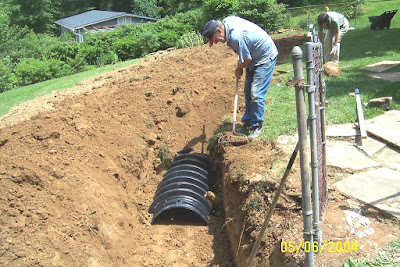Ed's Environmental Blogger: The Age of Alternative Septic Systems - Possible Cost and Design Benefits
Ed's Environmental Blogger: The Age of Alternative Septic Systems - Possible Cost and Design Benefits
https://edwardhorbachukiii.blogspot.com/2020/05/the-age-of-alternative-septic-systems.html
The Age of Alternative Septic Systems - Possible Cost and Design Benefits
Are you sick and tired of dealing with traditional septic systems? Don't worry, because we have come to provide you with a comprehensive set of information on all new alternatives to septic systems. The uses of septic systems are mainly seen in hunting cabins, cottages, vacation lodges, or in the very sparsely populated rural areas.
Hence, people living in these areas must know about them meticulously. Soil quality, as well as its type, plays a big role in the overall performance of the septic system. Septic systems are quite difficult to maintain in wetter soil. In wetter conditions, the septic technique's ability to treat effluents is shunned to a great extent.
In general, you want sandy soil that is not too coarse, well-drained soil, and naturally undisturbed soils to absorb the effluent. When the soil is too coarse, wastewater passes too quickly to receive sufficient treatment.
A septic system is perfect for treating wastes and is essential for those who are not connected to the municipal or another privately owned system. Proper maintenance of them is essential to maintain healthy conditions for the house as well as the owner of the system.
Therefore, choosing the right septic system for your home is absolutely essential. There are two types of systems; conventional models and their alternates. Soil type and the overall conditions are the key determinants while choosing a septic system. We are giving you in-depth information on the alternatives below.
The most commonly used septic techniques are Gravity and Pressure distribution systems. Gravity is a traditional system that dumps the effluents inside the drain field. The pressure distribution system is also called low-pressure systems.
They are ideal for gravels and in the soil of coarse nature. Other new alternatives to septic systems include Aerobic treatment unit, Mound systems, and Sand filter systems. Aerobic systems are used in areas that require special attention with regard to waste treatment.
Such systems produce cleaner wastewater through the use of oxygen in the treating process. Mound systems are crucial for those areas that have less soil and hence the drain field is a bit elevated. Sand filter systems are also used when little soil is available for treating wastes. It consists of a special soil filtering technique.
Other important new alternatives are Glendon Biofilter, AdvanTex Filter, and Drip Irrigation. Glendon Biofilter consists of a small watertight box that consists of a few layers of sand and gravels. The waste is pumped in through the lower part of the box and then it moves upwards.
Therefore, the top portion consists of treated wastes only. The Advan Tex technique also consists of a watertight box that contains engineered textile materials.
This system is ideal for the treatment of a large amount of effluent water in a comparatively small amount of space. The drip based technique allows the wastewater to be spread over a vast space of the drain field. This system is quite slow, but it provides good results. You can choose any of the aforementioned systems for efficiently processing effluent and enacting onsite wastewater treatment processes.
For more information on (ATUs), read the entire article here.
Check out our main blog on septic system installation and septic repair.
via Ed's Environmental Blogger https://edwardhorbachukiii.blogspot.com/




